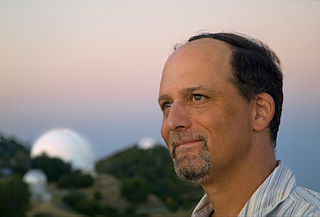A Quote by Lou Reed
Electricity comes from other planets.
Quote Topics
Related Quotes
When I grew up as a kid, we didn't know there were any other planets outside of our own solar system. It was widely speculated that planet formation was an incredibly rare event and that it's possible that other planets just don't exist in our galaxy, and it's just this special situation where we happen to have planets around our sun.
There's no doubt that the search for planets is motivated by the search for life. Humans are interested in whether or not life evolves on other planets. We'd especially like to find communicating, technological life, and we look around our own solar system, and we see that of all the planets, there's only one that's inhabited.
I keep wondering if, say, there is intelligent life on other planets, the scientists argue that something like two percent of the other planets have the conditions, the physical conditions, to support life in the way it happened here, did Christ visit each and every planet, go through the same routine, the Agony in the Garden, the Crucifixion, and so on.
But what exceeds all wonders, I have discovered four new planets and observed their proper and particular motions, different among themselves and from the motions of all the other stars; and these new planets move about another very large star [Jupiter] like Venus and Mercury, and perchance the other known planets, move about the Sun. As soon as this tract, which I shall send to all the philosophers and mathematicians as an announcement, is finished, I shall send a copy to the Most Serene Grand Duke, together with an excellent spyglass, so that he can verify all these truths.
A major puzzle for which nobody has an answer is this: is there some size at which the planets change their nature from water-rich planets like Neptune, to rocky planets like the Earth? We have found two planets that are the size of the Earth in radius, but they are very close to their host star, so water on the surface would evaporate away.
When authoritative reports of radical-design craft having spectacular performance are viewed in the light of a stream of astrobiological discoveries, the possibility that some UFOs are alien does not seem quite so farfetched. Serious-minded scientists in astronomy and other disciplines estimate there could be billions of planets in the universe, and millions that could harbor life. If even a few of those planets were occupied by technological civilizations, their ability (if not desire) to explore other worlds, such as ours, must be a possibility.



































